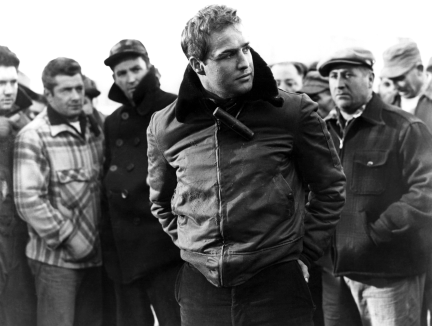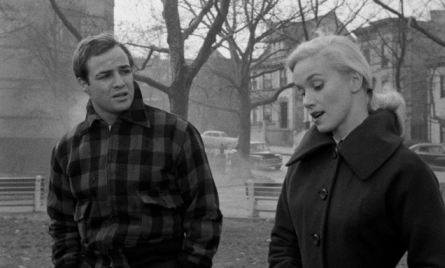“I coulda had class. I coulda been a contender. I coulda been somebody.”

Brando laments life choices to Steiger.
The funny thing about that iconic monologue is how wonderfully well delivered and, in fact, how understatedly Brando delivers it. You’d think—or at least I had thought—that it was on a par with “STELLA!!” delivered with torn shirt and long-smoldering passion erupting to the surface. But it’s not: It’s just the realization of a man who suddenly sees how much his “friends” have asked of him, and how much he lost by doing what they said.
Which makes it the perfect cri de couer for Elia Kazan, who would be more or less buried by the time I started going to the movies due to his cooperation with the House UnAmerican Activities Committee, which we all know is the most shameful thing to ever happen in any government ever. Worse than Hitler. Way worse than Stalin or Mao, who (we can all agree) meant well.
But it’s fair to point out—necessary, even, to point out—that, while anyone might be seduced by the notion of “helping out workers”, as unions and leftists always claim as their motives, anyone should also be able to recognize when that ship has sailed and the organization has long stopped serving anything but itself. Corruption being what it is, of course, we see nothing, and we take down those who insist that 2 + 2 really is four, no matter how much we want to use a given bathroom.
Am I diffuse? Very well, then, I am diffuse. I contain multitudes, spread very thinly.

These guys TOTES care about what happens to Brando.
Politics aside, it’s a great story, brilliantly acted. Brando, yes, obviously. Lee J. Cobb, the heavy of all heavies. Karl Malden as the sanctimonious priest who actually gets off his ass and down to the docks. Beautiful performance from Rod Steiger, whom I didn’t recognize because I only knew him as the old guy from the ’70s—and he wasn’t even that old back then, only in his ’50s, but he seemed to play old (rather than middle-aged) roles, like Max Von Sydow and Abe Vigoda. He really holds his own with Brando. Eva Marie Saint probably epitomizing the good girl/bad boy dynamic that fueled the whole Brando phenomenon.

A little long-in-the-tooth to play the school girl but still! Eva Marie Saint!
Excellence all around. The direction and cinematography is clean and unsentimental, without wandering into being cold or unsympathetic. Leonard Bernstein’s score is rather insistent but occasionally it’s brilliant. (It lost the Oscar to Dmitri Tiomkin’s score for The High and the Mighty, which I haven’t heard, but if you’re going to lose a music Oscar, losing to Tiomkin is hardly losing at all.)
I have never seen a Kazan movie prior to this. (Although I walked out on East of Eden as a teen. It was on a double bill with Rebel Without A Cause and since I had just read the book, I really didn’t want to see it shoehorned into James Dean’s “rebel” schtick. I might be able to watch it now.) It’s worth a look, even if you’re not really interested in unions, or the struggles of the masses, or what-have-you. I think I know why, too, beyond the obvious matters of craft.
When we are lectured today, as we often are, about the plight of the poor, and of the working class, it is by someone who not only isn’t part of this group, they’ve never been part of this group, and in fact they seek to elevate themselves above the rest of us—including those they claim to represent—by virtue of their putative virtue. Even if Kazan (whose parents fled the Ottoman Empire when he was quite young) and screenwriter Budd Schulberg didn’t have impoverished upbringings, the last thing you get from either is that they feel a distance between themselves and the “lower classes”.
Schulberg also had the same disillusionment with Communism as Kazan, including an outspoken resentment that nobody talked about all the people Stalin killed.
It’s heartfelt. And it has some basis in reality. And that comes out on-screen. Check it out.

Don’t be a pigeon all your life.

2 thoughts on “TCM Presents: On The Waterfront”